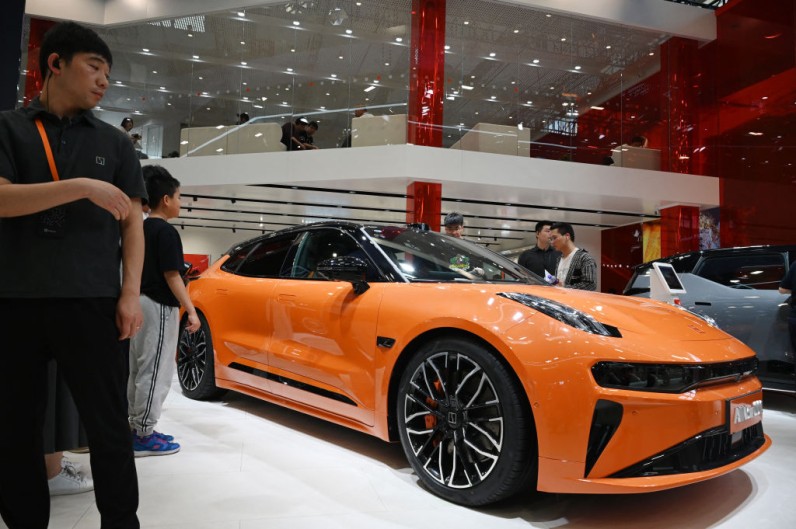
US President Joe Biden has announced tariff increases on Chinese-made electric cars, solar panels, steel, and other goods as part of a strategy to address unfair trade practices and protect American jobs.
BBC reported that the new measures include a 100% border tax on electric vehicles from China and increased tariffs on solar cells and certain steel and aluminum products.
China has criticized these plans, which were signaled in advance. Analysts believe the tariffs are largely symbolic, aimed at garnering support during a challenging election year.
The tariffs, estimated to affect $18 billion worth of imports, will see electric vehicle tariffs rise from 25% to 100%, solar cell tariffs increase from 25% to 50%, and tariffs on particular steel and aluminum products more than triple to 25%.
During the Biden administration's review of these measures, the government received nearly 1,500 comments, mostly from business owners who claimed the tariffs raised American prices and requested their removal.
Despite these concerns, Biden has chosen to maintain and expand the tariffs, which is a change in US trade policy, but it is traditionally favoring global commerce.
White House on Higher Tariffs
The US already imposes steep tariffs on Chinese electric vehicles, according to VCPost, making their sales negligible in the US market.
Vice-president of the Asia Society Policy Institute, Wendy Cutler, suggested that Americans might be willing to tolerate higher prices on certain goods if it helps to protect US industries and jobs. After all, the US must maintain its competitiveness in the global market, especially in key sectors such as solar energy, steel, aluminum, and automotive manufacturing.
This implies a trade-off between short-term higher consumer costs and long-term benefits of a stronger, more competitive domestic industry.
Meanwhile, White House officials denied that the decision was influenced by domestic politics, attributing the measures to Beijing's harmful business practices, such as forcing Western companies to share information and then stealing it.
They also said the targeted tariffs were unlikely to stoke inflation, contrasting Biden's approach with Trump's.
White House officials defended the importance of ensuring that green technologies are not dominated by a single country for a successful and sustainable transition.
While the immediate impact of the new tariffs on electric vehicles might be minimal, the business world is closely watching to see if Europe will follow suit.







Join the Conversation